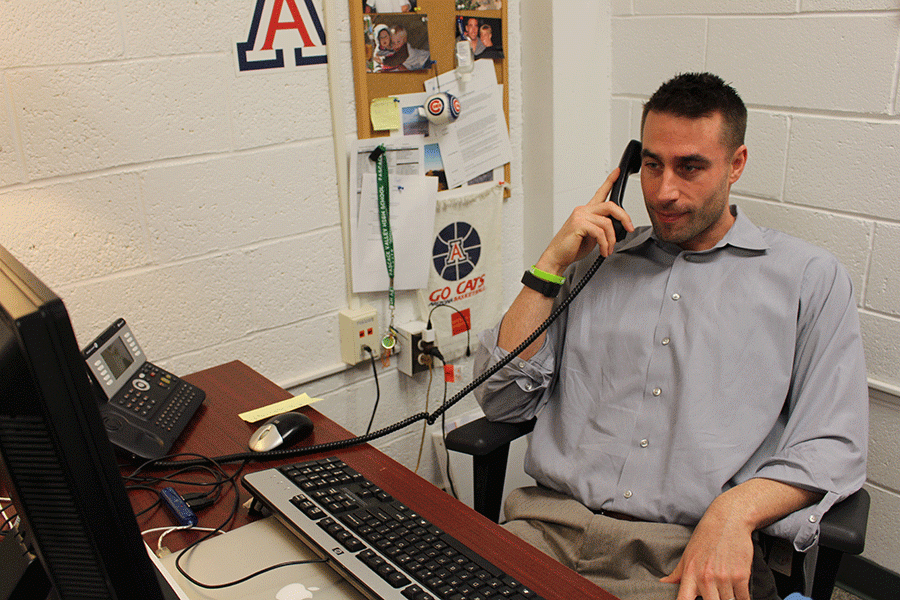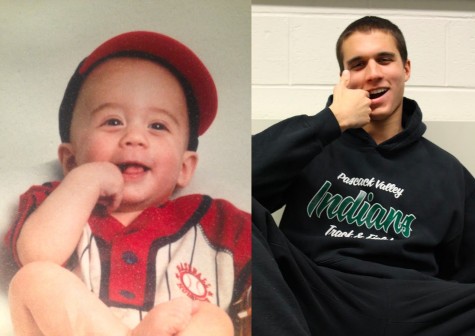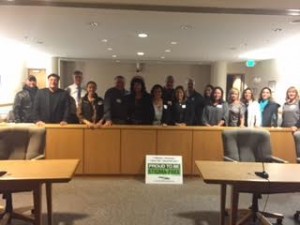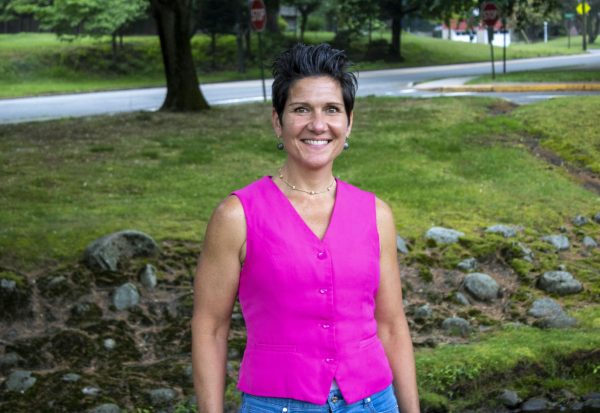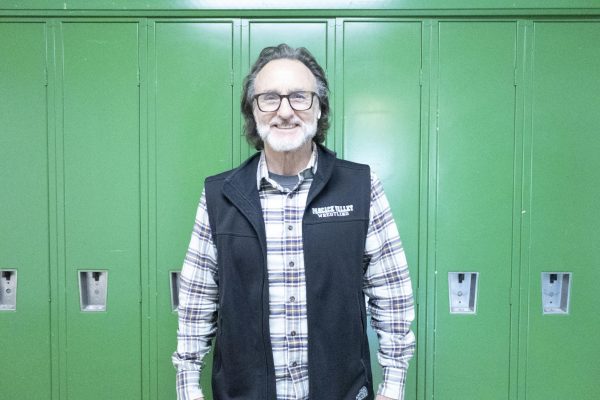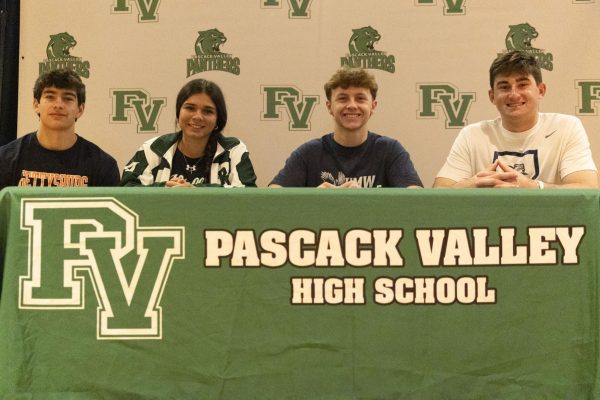School psychologist extends role
Dr. Steve Myers, one of PV’s school psychologists, answers phone calls in his office.
Dr. Steve Myers is probably unknown to most people here in Pascack Valley. As a school psychologist, his office is located near the band and choir rooms, which is certainly off the beaten path. While involved with the Peer Leader program, the majority of his time is spent with the Park Program.
“I started with the Park Program,” Myers explained, “where I work with kids to provide counseling, case management, and communication with parents.”
While most students know that the Park Program exists, its purpose seems to remain a mystery.
“Students are referred to Park Academy for assistance with learning, social, behavioral and emotional challenges,” according to the Pascack Valley District’s statement about the Park Program. “Our mission is to provide a safe place where students are assisted in developing executive functioning and coping skills. Students’ academic strengths are maintained and areas of needs addressed.”
School psychologists play an important role in the development of students in the program.
“Responsibilities are varied depending on the school district,” Myers explained. “School psychologists work with students with IEPs (Individualized Educational Programs), monitoring their academic progress, and psychological testing.”
However, beginning this year, Myers has taken on a larger role within the general student body. He is now open to interaction with students if they have an issue they believe he could help with. These issues could be related to mental illness or just needing someone to listen to a problem or issue.
“Our district has been changing to more of a wellness initiative,” Myers said. “If students are interested, they can stop down by my office, email me, or write a note.”
However, Myers is not available to continually meet with students. His role is to bridge the initial problem with professional help.
“Because I am a psychologist, by law, parent consent must be given after one meeting,” Myers explained. “But once a student turns 18, they do not need consent.”
Mr. Ryan Walter, a history and psychology teacher as well as the advisor of the Stigma-Free Initiative Club, wishes to provide students with education and awareness of mental health. He also wants students to be aware of the roles of school psychologists and other resources that are available to students within their school.
“People should know that they are here and are experienced and impeccably credentialed,” Walter said. “The Stigma-Free Group wants more people to know about them because they are experts.”
However, Walter also stressed that Myers and other school psychologists would mostly help students get in touch with necessary services.
“Primarily, the people who would end up doing the therapy and counseling would be outside of the building,” Walter explained.
List of student resources:
Mr. Rick Attanasio- School Psychologist
Dr. Steve Myers- School Psychologist
Ms. Maria Manning- School Psychologist
Mrs. Christine Rossig- Student Assistance Counselor
Ms. Elyse Elisano- Social Worker


